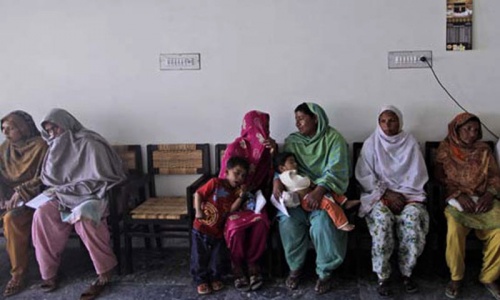ISLAMABAD: Government auditors have raised objections to the billions spent by the previous administration to advertise its flagship pro-poor programme.
The media campaign highlighting the Benazir Income Support Programme (BISP) cost the PPP-led government a staggering Rs 3.15 billion.
Soon after BISP was established through an act of parliament in October 2008, the-then programme managers, led by former chairperson and member of the National Assembly Farzana Raja, splurged Rs93 million on its media campaign in the span of a single financial year, 2008-2009.
In 2009-2010, the second financial year of the PPP government, the BISP management splashed out well over half a billion rupees — Rs658m — on placing large ads in the newspapers and running paid content on private television channels to promote the programme.
The management didn’t stop there: in the following financial year (2010-2011), it spent Rs835m under the same head of media campaign. During the second last year of the PPP-led administration — 2011-2012 — BISP ran one of the costliest ad campaigns by any government department within a single financial year, costing the national exchequer a whopping Rs956m.
The last financial year of the PPP-led government was no exception to what had become the norm by then: BISP remained busy shedding light, through the media, on what it claimed was one of the best pro-poor programmes in the world, consuming Rs609m in the process.
A senior official of the present BISP management says that although originally the programme was meant to strengthen the meagre resources of the households which found it extremely difficult to eke out an existence, it was massively abused to line the pockets of the affluent class.
“In the entire history of the country, one cannot single out a public sector organisation spending so much money on its advertisements. There was absolutely no justification for throwing millions of rupees all around for publicity,” said the official.
Answering a question, the official said there was no need for such an aggressive media campaign because the programme was meant to benefit the people. (Not that our rulers had not sought any sacrifice from the general masses previously, as in the case of the Qarz Utaro Mulk Suwanro scheme during the PML-N’s earlier tenure in which the public was asked to help the government clear national debts).
Moreover, the elected representatives of the people knew who was in most need of the sustenance allowance under BISP.
Talking to Dawn, a senior official of the Press Information Department said that it was on record that BISP carried out an expensive media campaign which, with a little bit of care and homework, could have been managed well without the costly advertisement bill that the programme had to foot in the end. The PID is responsible for releasing ads to media groups on behalf of organisations in the public sector.
BISP has so far consumed Rs165bn — 85pc of this amount has come from the government exchequer. The remaining 15pc to 16pc expenditure is from donors in the form of loans which the Pakistan government will have to repay with interest.
Meanwhile, the mismanagement of BISP funds has been repeatedly taken up by lawmakers in the present National Assembly. In response, the government benches have assured parliament that they will conduct a fair and impartial inquiry.
The office of the auditor general of Pakistan in its annual reports for the years 2010-2011 and 2011-2012 has also highlighted scores of audit paras on the irregular and unnecessary spending on BISP, an issue that is due to be taken up by the Public Accounts Committee of the National Assembly.
Former PPP Senator Enver Baig, who later joined the PML-N, is the current chairman of BISP. In his repeated interactions with the media, he confirmed that the programme suffered financially under the previous management. He has said that he intends to get the matter investigated at all available forums.














































